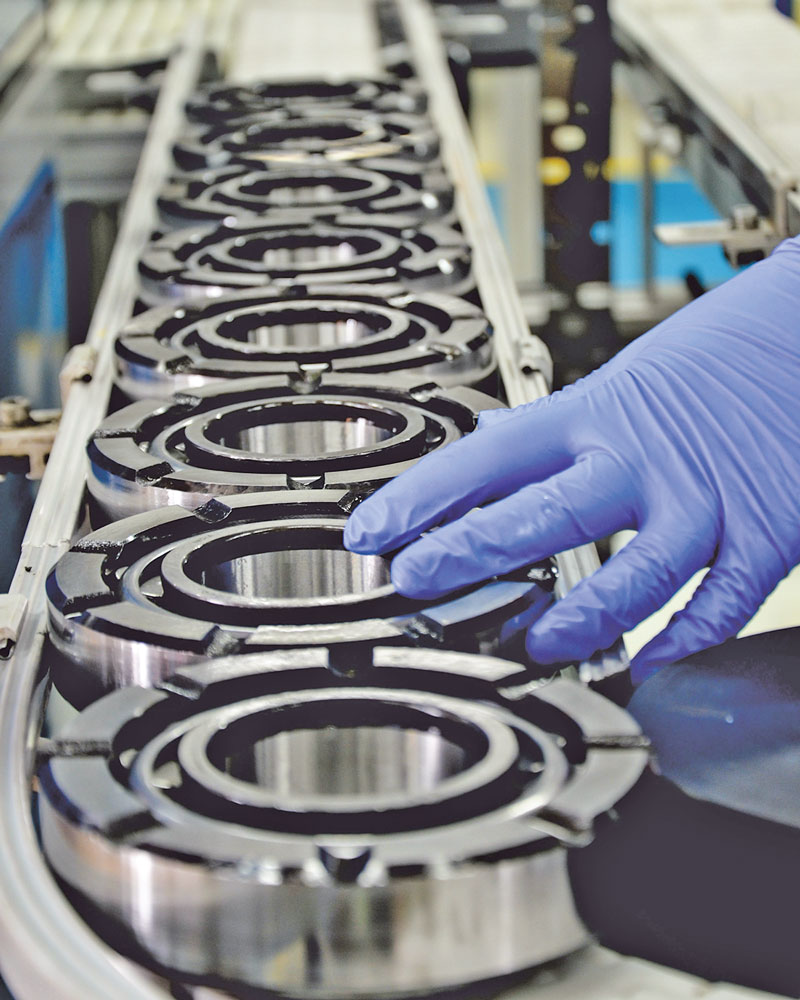The Importance of Bearings in Industry
The Importance of Bearings in Industry
Blog Article

Imagine a world without smooth machinery, where every rotation creates friction and noise, leading to inefficiencies and breakdowns. Bearings, though often overlooked, play a crucial role in ensuring that machines operate efficiently and quietly. From the hum of an electric motor to the precision of an industrial robot, the quality of bearings determines the performance and longevity of equipment. This is where A great bearing manufacturer becomes essential, supplying high-quality components for various applications.
The Importance of Bearings in Industry
Bearings reduce friction between moving parts, allowing for smoother motion and reducing wear and tear. In a manufacturing plant, for instance, the reliability of conveyor belts hinges on the quality of the bearings that support them. If even one bearing fails, it can lead to production delays and costly repairs. The statistics are staggering; according to industry reports, bearing failures account for up to 40% of all machinery breakdowns. This highlights the need for reliable suppliers who can provide durable and efficient bearings.
Types of Bearings and Their Applications
Bearings come in various types, each designed for specific applications. Tapered roller bearings are ideal for applications where heavy loads are present, as they can handle both radial and axial forces. On the other hand, spherical roller bearings are perfect for situations where misalignment might occur. Each type has its unique features and benefits, making it imperative for manufacturers to choose the right bearing for their specific needs.
[IMAGE]
For instance, in the automotive industry, tapered roller bearings are commonly used in wheel hubs and gearboxes. Their ability to manage heavy loads and resist wear makes them indispensable for vehicles that need reliability and performance. Conversely, spherical roller bearings find their place in wind turbines, where alignment can vary due to environmental factors. The right bearing choice can lead to increased efficiency and reduced maintenance costs.
Choosing the Right Manufacturer
When selecting a bearing manufacturer, it’s crucial to consider their reputation, quality standards, and the breadth of their product range. A great bearing manufacturer will not only offer a wide variety of bearings but also ensure that they meet international quality standards. Certifications like ISO 9001 can be indicators of a manufacturer’s commitment to quality control.
Additionally, customer service is a key factor. The ability to consult with engineers and technical experts can help manufacturers make informed decisions about which bearings to use in their applications. A manufacturer that prioritizes customer engagement can provide valuable insights into product performance and maintenance practices.
The Future of Bearing Technology
As industries become more automated and the demand for efficiency increases, the future of bearing technology looks promising. Innovations in materials, such as ceramics and advanced composites, are paving the way for lighter and stronger bearings. These advancements can lead to reduced energy consumption and enhanced performance in high-speed applications.
Moreover, the integration of smart technology into bearings is on the rise. Sensors embedded within bearings can monitor performance in real-time, allowing for predictive maintenance and minimizing downtime. This proactive approach not only extends the life of the equipment but also optimizes operational efficiency.
Conclusion
In a world where machinery is the backbone of industry, the importance of high-quality bearings cannot be overstated. Selecting the right bearings from A great bearing manufacturer ensures not just smooth operations but also contributes to the longevity and efficiency of equipment. By understanding the different types of bearings and their applications, manufacturers can make informed choices that lead to enhanced productivity and reduced operational costs.
Report this page